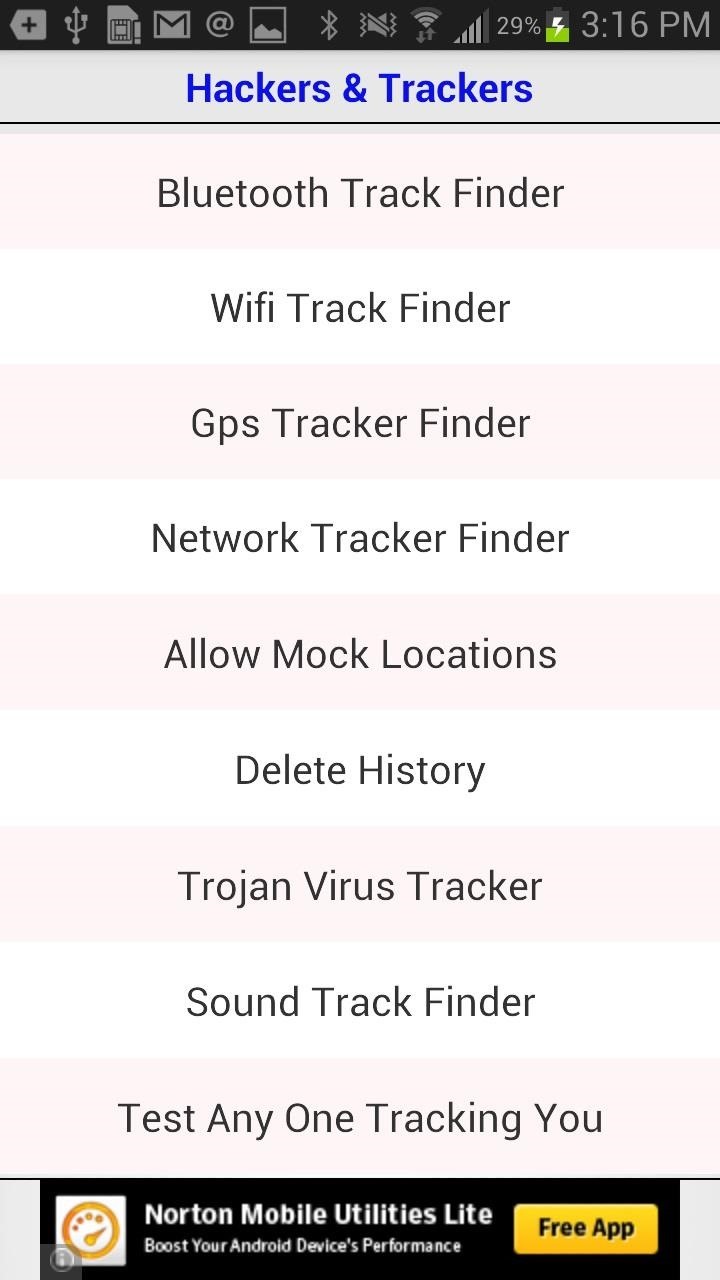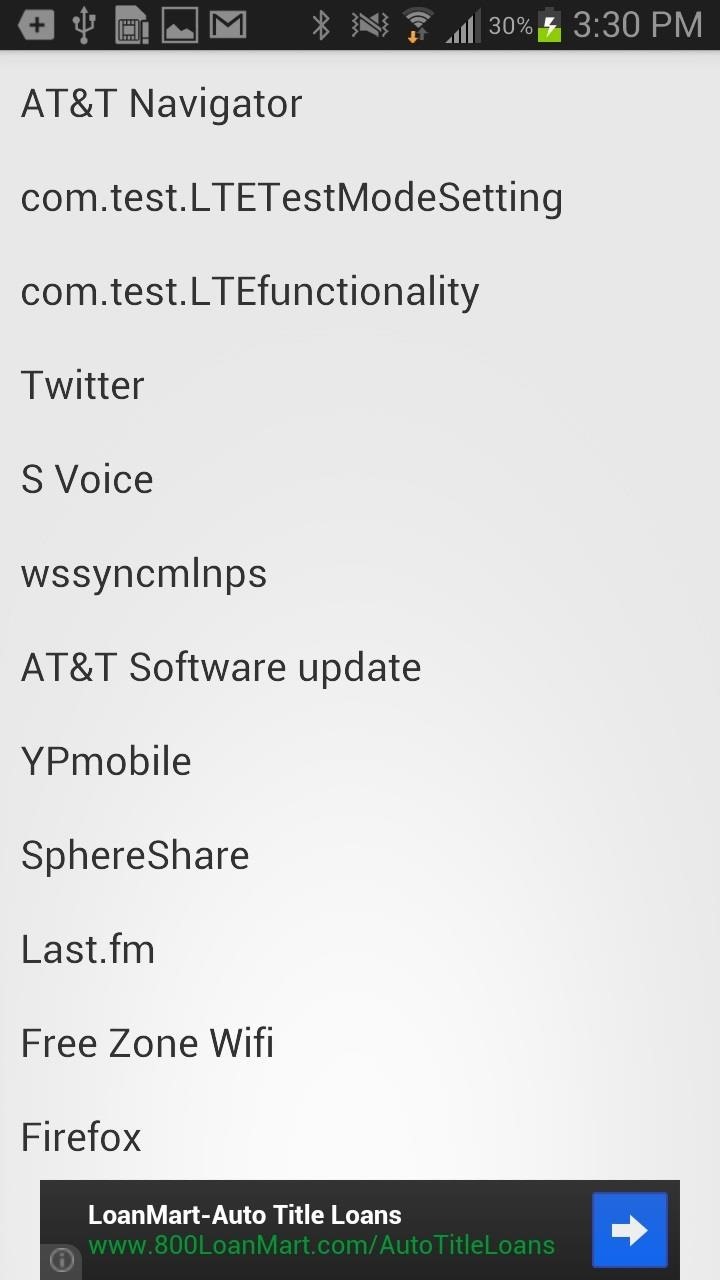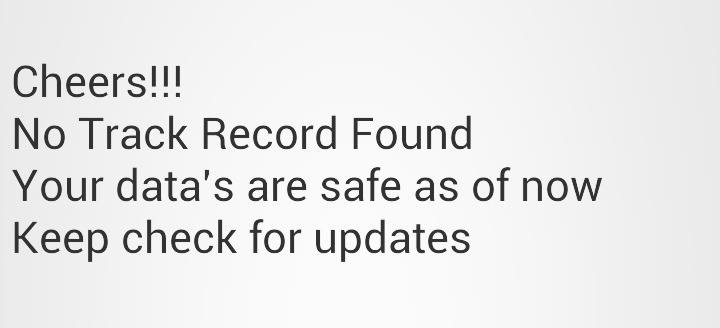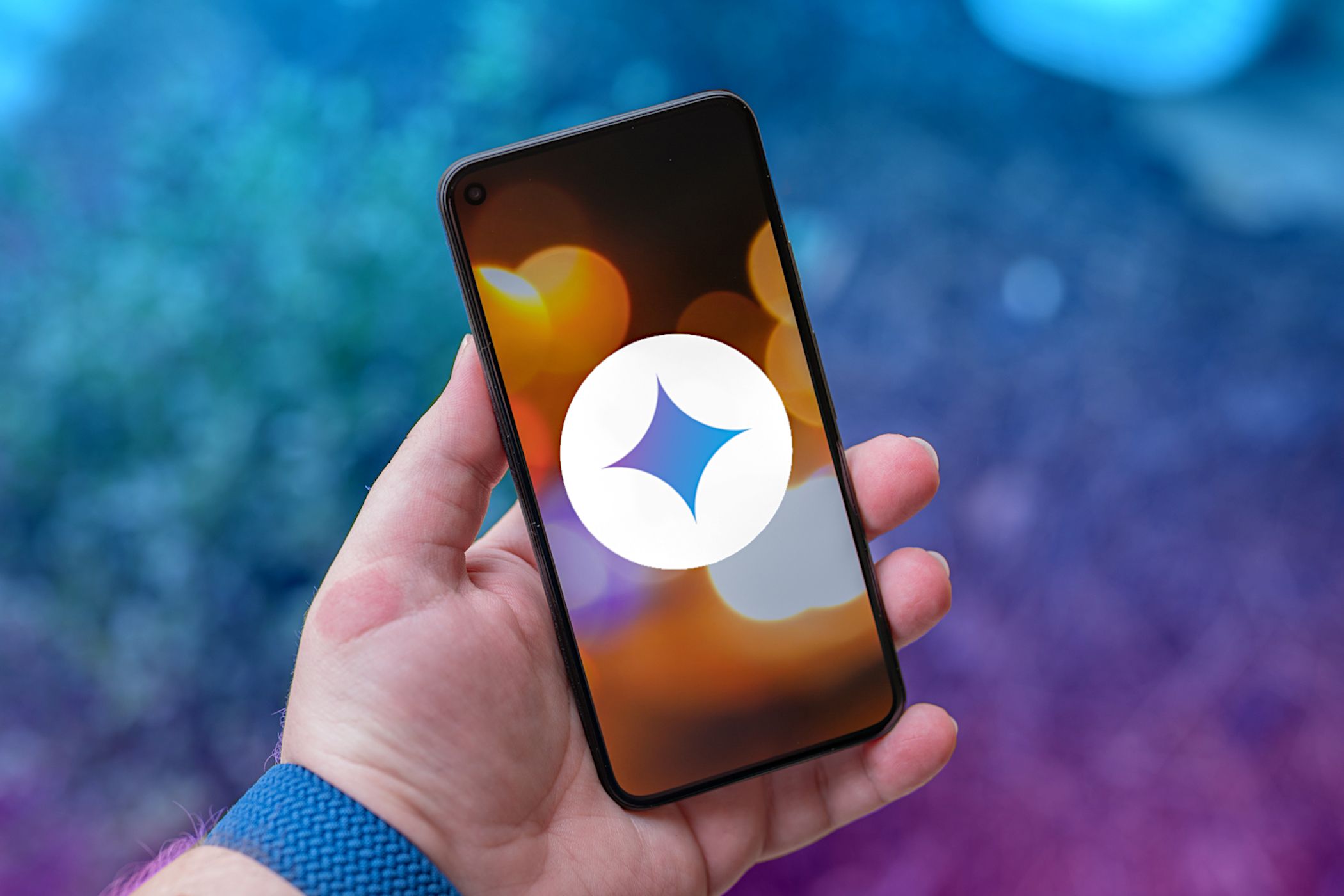A wave of shock and anger swept across the country after Edward Snowden released private documents recounting the U.S. government’s secretive mass surveillance programs. Although some of the fear was unwarranted (they don’t read your emails or listen to your calls), many scrambled to find privacy of new heights for protection from the all-watchful eye.

While the government may not be tracking you down, there are a myriad of other candidates that fill that Big Brother role—and I’m not talking about family. Bloatware and malicious apps on your Samsung Galaxy Note 2 or other Android smartphone may actually be tracking your every step, reading through all your emails, and checking out your bank statement—without you even knowing it.
How Can You Protect Yourself?
Who Is Tracking from Appz Inventors detects any malicious apps trying to track you and nab your invaluable personal data—bank accounts, locations, social network information, messages, and much more.
Who Is Tracking’s Options
Once you install Who Is Tracking, you’ll be taken to the app’s homepage, where you have several options to choose from:
- Bluetooth Track Finder (shows connected devices and any apps trying to connect to them)
- WiFi Track Finder (finds wireless networks you’re connected to and any apps trying to use them)
- GPS Tracker Finder (finds apps using your GPS coordinates)
- Network Tracker Finder (finds apps using your cellular network)
- Allow Mock Locations (enable this to send mock GPS data to apps)
- Delete History (delete your GPS location history)
- Trojan Virus Tracker (finds any viruses that may be installed)
- Sound Track Finder (notifies you when it tracks something malicious (paid version only))
- Test Any One Tracking You (shows all apps tracking you via Wi-Fi, GPS, Bluetooth, cellular networks, etc.)
I’ll run through a few of them below.
GPS Tracker Finder
Selecting any of the Track(er) Finder options will give you a list of all the apps on your device that are using the designated feature. Tapping on GPS Tracker Finder sent me to a list (picture below; right) that showed apps that are currently tracking my location, like Twitter and Firefox.


Allow Mock Locations
With Allow Mock Locations, you’ll be taken to the developer options on your device, which has a mock locations enabler that lets you trick apps into thinking you’re somewhere else. You can also delete the GPS history from your device.
Test Any One Tracking You
The most important feature, though, is Test Any One Tracking You, which checks any applications maliciously using your device. I had it scan my Galaxy Note 2 and this came up:

Yay.
What to Do When You Find a Possibly Malicious App
If you do have an app that has permissions you didn’t agree to, the best thing to do is delete it. While it’s technically possible to delete individual permissions from the AndroidManifest.xml with something like apktool, the app might crash when trying to use your modified permissions, not to mention the process might be tedious for a n00b. So if you really don’t want it tracking you, it’s easiest to just get rid of it.
If you want to learn more about the app, check out the original thread by jacksparao over on XDA. The paid version of the app is slated for release sometime soon, so keep an eye out. Not like the government all-seeing eye or anything, just a normal, human eye, you know?
Just updated your iPhone? You’ll find new features for Podcasts, News, Books, and TV, as well as important security improvements and fresh wallpapers. Find out what’s new and changed on your iPhone with the iOS 17.5 update.
“Hey there, just a heads-up: We’re part of the Amazon affiliate program, so when you buy through links on our site, we may earn a small commission. But don’t worry, it doesn’t cost you anything extra and helps us keep the lights on. Thanks for your support!”











